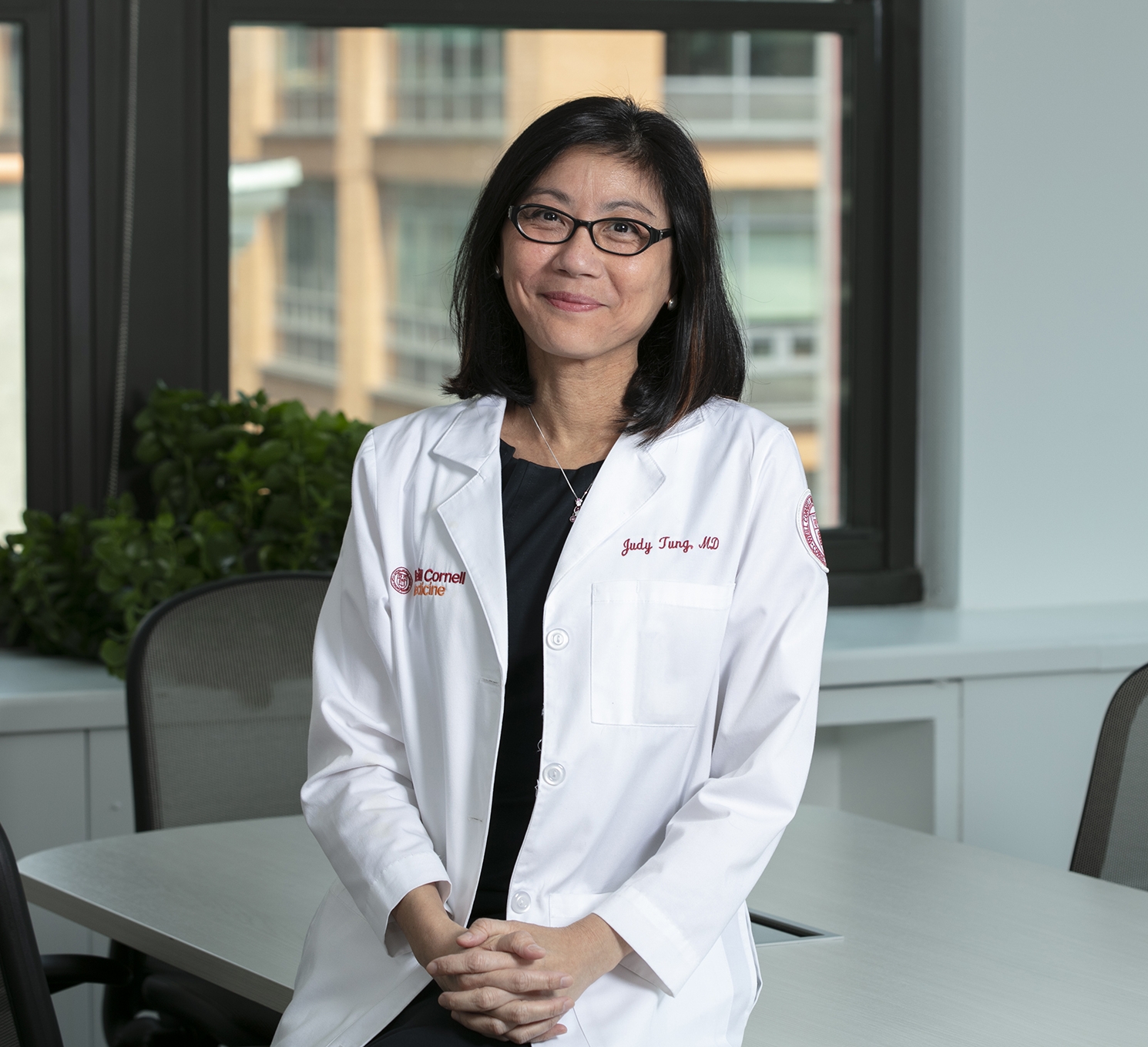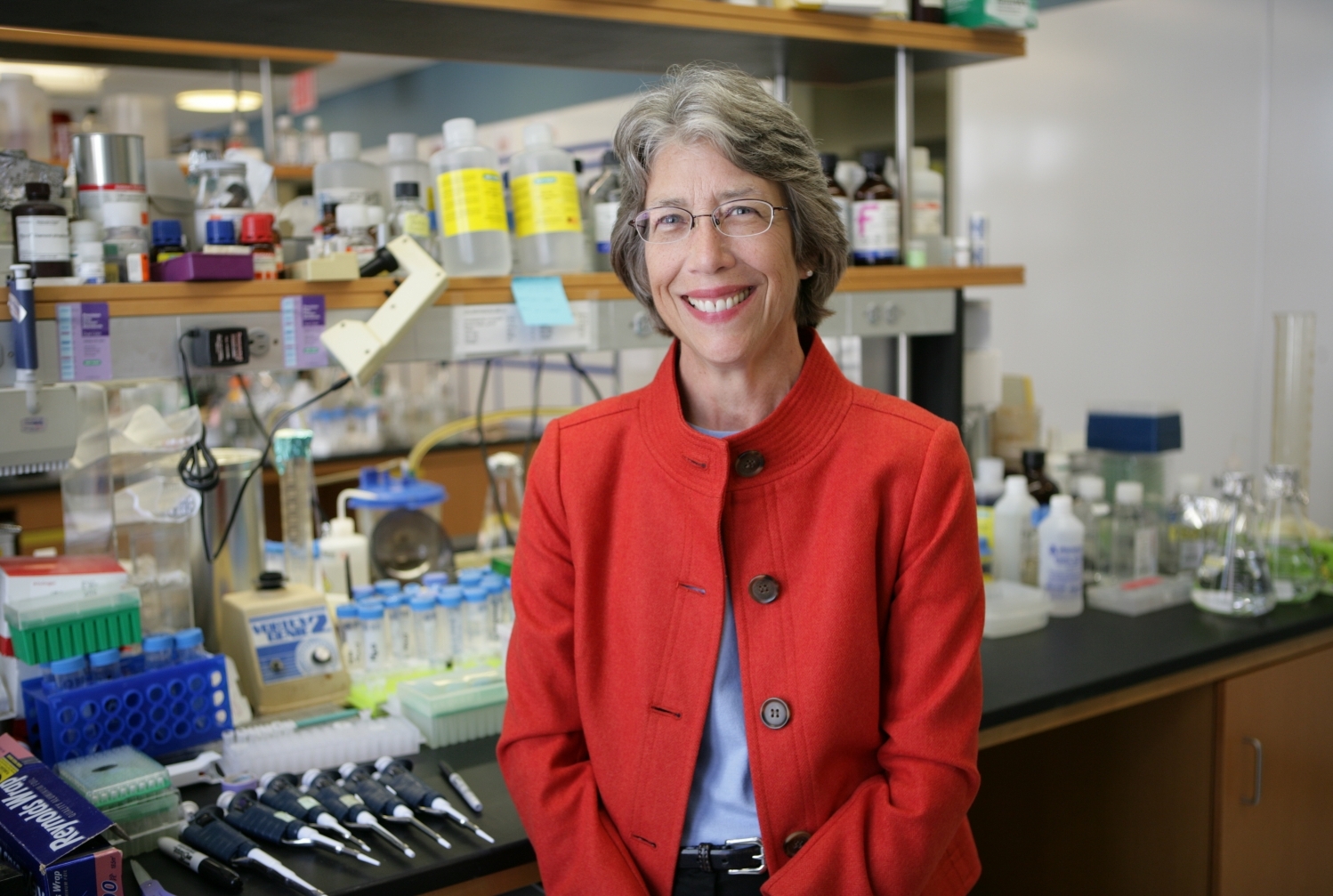Dr. Katherine Hajjar, an esteemed physician-scientist with expertise in pediatric hematology and vascular cell biology, has been named senior associate dean for faculty at Weill Cornell Medicine, effective Jan. 1. Dr. Judy Tung, a distinguished internist and educator, has been appointed associate dean for faculty development.
Dr. Hajjar will lead Weill Cornell Medicine’s Office of Faculty, which will focus on all aspects of faculty advancement at the institution and under whose auspices the Offices of Faculty Affairs and Faculty Development will operate. The Office of Faculty Development is dedicated to ensuring Weill Cornell Medicine’s physicians, scientists and educators achieve academic success by providing them with the resources and support—including mentorship and leadership training—they need to advance their careers. The Office of Faculty Affairs reviews, processes and tracks all faculty appointments for the institution’s nearly 1,800 full-time faculty members. It implements policies and best practices for promotions and tenure actions, working with academic staff to prepare faculty dossiers, solicit recommendations and manage reviews.

Dr. Judy Tung. Photo credit: Jörg Meyer
“By fostering a supportive and nurturing environment, we will ensure that Weill Cornell Medicine faculty reach their highest potential as clinicians, scientists and educators,” said Dr. Augustine M.K. Choi, the Stephen and Suzanne Weiss Dean of Weill Cornell Medicine. “Dr. Hajjar, with career-long service to this institution and an exemplary record of guiding faculty, trainees and students to career success, is the ideal choice to lead the Office of Faculty. Dr. Tung has demonstrated a sustained commitment to supporting faculty at all stages, and I am confident she will help bolster our mission of nurturing the next generation of leaders.”
“I have been at Weill Cornell Medicine for over 35 years and have been very fortunate in my career here,” said Dr. Hajjar, who is the Brine Family Professor of Cell and Developmental Biology and a professor of pediatrics and of pediatrics in medicine. “I have had the distinct opportunity to work with wonderful mentors, in a collegial environment with people I greatly respect, and I am thrilled to be able to pay it forward by ensuring that our faculty work in that same kind of environment. This is my opportunity to make a difference for other people and help them attain their highest professional potential.”
In her role as senior associate dean for faculty, Dr. Hajjar will work closely with Dr. Jane Salmon, associate dean of faculty affairs, to increase communication between the Office of Faculty Affairs and Weill Cornell Medicine’s academic department chairs to catalogue faculty accomplishments and determine readiness for promotion. This work includes improving the annual faculty review process, ensuring that it is more transparent so that faculty members have clarity as to which professional track they are on—clinical track, research track or educator track—and what they need to do to be promoted.
Under Dr. Hajjar’s leadership, the Office of Faculty Development will continue to bolster its commitment to mentorship, one of Dr. Choi’s priority areas for the institution, by cultivating strong connections among colleagues at every academic level and ensuring that every department has a robust mentoring program for its faculty.
As associate dean for faculty development, Dr. Tung will work with Dr. Hajjar to provide the Office of Faculty Development with operational and strategic support. She will continue to build on existing mentoring and leadership initiatives, with the goal of maximizing the academic success of faculty members and further developing a diverse community that excels across Weill Cornell Medicine’s tripartite mission to care, discover and teach.
“At Weill Cornell Medicine we want to see our faculty succeed, find ways for them to make valuable contributions, help them grow professionally and have them feel that their goals are being supported at an organizational level,” said Dr. Tung, who is an associate professor of clinical medicine and chair of the Department of Medicine at NewYork-Presbyterian Lower Manhattan Hospital. “My life’s work is the cultivation of individuals to their highest potential. This appointment will allow me to widen my reach, work with more faculty, and align them with institutional goals on an even broader level.”
One such mentorship initiative is the Leadership in Academic Medicine Program (LAMP). The program, through a series of monthly workshops, provides faculty who are in their first five years of their careers with professional development skills to solidify career objectives and grow into leadership roles. The curriculum, which Dr. Tung conceptualized and leads, focuses on goal setting, self-management and team building, in addition to leadership skills. “A lot of our team’s efforts have been directed at the junior faculty, who as a group are looking for career opportunities within the institution and who are most eager for mentorship,” Dr. Tung said.
Also operating within the Office of Faculty Development is the Mentoring Academy, directed by Dr. Ruth Gotian, assistant dean for mentoring. The academy takes a proactive approach to mentoring and sponsoring Weill Cornell Medicine faculty, with such activities occurring in both formal and informal settings. The office will also create appropriate mechanisms for assessing faculty needs and for measuring the effect of faculty development programs, including developing a robust database to document mentor-mentee connections at the institution. In addition to Dr. Hajjar and Dr. Tung, the Office of Faculty Development’s leadership also includes Dr. Richard Isaacson, assistant dean for faculty development, whose role includes helping new faculty acclimate to the institution through seminars and online learning modules.
Dr. Hajjar is a physician-scientist whose research focuses on the molecular basis of the process that prevents harmful blood clots from developing in the body, called fibrinolysis. She received her medical degree from Johns Hopkins University School of Medicine in 1978, and completed a residency in pediatrics at Children’s Hospital of Pittsburgh and a fellowship in pediatric hematology-oncology at Johns Hopkins Medicine. Dr. Hajjar joined Weill Cornell Medicine’s faculty in 1984 as an assistant professor of pediatrics and of pediatrics in medicine, rising to the level of professor in 1995. She has since served in many leadership roles, including division chief in Pediatric Hematology-Oncology, chair of the Department of Cell and Developmental Biology, co-chair of Weill Cornell Graduate School of Medical Science’s Cell and Developmental Biology program, associate dean for faculty development and, currently, vice chair for research in the Department of Pediatrics. Dr. Hajjar has mentored more than 30 postdoctoral and clinical fellows, graduate students and medical students during her academic career. She is a member of the American Society of Clinical Investigation and the Association of American Physicians, and a fellow of the American Association for the Advancement of Science.
A leading expert in general internal medicine, Dr. Tung has spoken nationally on innovative models of primary care. In addition to her role as chair of the Department of Medicine at NewYork-Presbyterian Lower Manhattan Hospital, she is also the section chief of ambulatory medicine in the Division of General Internal Medicine at Weill Cornell Medicine and NewYork-Presbyterian/Weill Cornell Medical Center. Dr. Tung obtained her medical degree from the Albert Einstein College of Medicine in 1997 and completed her internal medicine residency training at the University of California, San Francisco. She joined Weill Cornell Medicine’s faculty in 2001 as an instructor of medicine, advancing to associate professor of clinical medicine in 2012. Dr. Tung has served in many leadership positions at the institution, including interim chief of the Division of Internal Medicine, director of the primary care residency and associate chair of educational affairs. Dr. Tung has received a J. James Smith Teacher of the Year Award and is a fellow of the American College of Physicians.

